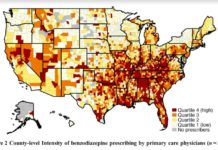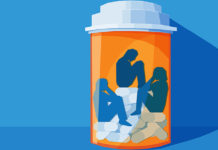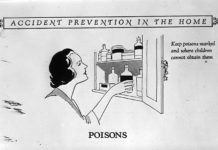Ketamine for Harmful Drinking: A Look at the Data
New research contends that ketamine can reduce problematic alcohol use but does the data support the claims?
Rates of Opioid Use Remain High Among US Adolescents
Researchers investigate trends in opioid use, prescriptions, misuse, and access reported by adolescents and young adults.
Parent Marijuana Use Associated With Substance Use in Children
A new study examines longitudinal, intergenerational patterns associated with marijuana use.
Mobile Apps for Mental Health Lack Transparency in Data Sharing
Research illustrates privacy concerns with how mental health applications collect and share users’ data.
Researchers Find Bias in Industry-Funded Continuing Medical Education
Industry-funded continuing medical education (CME) influences physicians to prescribe more opioids, focus less on the consequences.
Adderall Use Associated with Increased Risk of Psychosis
Twice as many teenagers with ADHD experienced severe psychosis when taking Adderall, as compared to Ritalin, according to a new study.
Youth-Nominated Social Support Reduces Mortality for Suicidal Adolescents
The Youth-Nominated Support Team intervention invites adolescents to select adults in their life to receive training on how to support them.
Opioids May Cause Depression and Worsen Chronic Pain
“Converging lines of evidence now suggest that depression—a common comorbidity in the setting of chronic pain—may in some patients represent an unrecognized yet potentially reversible harm of opioid therapy.”
Researchers Ask, ‘Why Do Antidepressants Stop Working?’
An international group of researchers, including several with financial ties to manufacturers of antidepressants, explore possible explanations for why long-term users of antidepressants become chronically depressed.
Belongingness Can Protect Against Impact of Trauma, Study Suggests
A new study explores feelings of belongingness as a protective factor for childhood trauma and adult mental health outcomes.
Benzodiazepine Prescriptions in Older Adults Used in Rural and Low Income Areas
Benzodiazepine prescription practices may be in response to an epidemic of distress, rather than being used to treat specific mental health diagnoses.
Anatomy of an Opioid Epidemic
Long-term opioid prescribing has not only been shown to not be helpful for chronic pain; it in fact worsens pain by repeatedly causing tolerance and withdrawals (the main symptom of which is pain). This is analogous to how psychiatric drug use, though often helpful initially, ultimately can cause people to become chronically “mentally ill.”
Systematic Review Finds Antidepressant Withdrawal Common and Potentially Long-lasting
Prominent researchers conduct a review of antidepressant withdrawal incidence, duration, and severity. Results lead to call for new clinical guidelines.
International Study Documents Widespread Distress in College Students
An international study of college students reveals ubiquitous social and emotional challenges faced by young adults.
Rates of ADHD Diagnosis and Prescription of Stimulants Continue to Rise
Two new articles find that rates of ADHD diagnosis and stimulant prescription continue to rise all over the world.
Hallucinations Reported as Side Effect of ADHD Medication
Hallucinations and other psychotic symptoms have been reported after methylphenidate (Ritalin) treatment for ADHD.
What Stops People From Using Exercise to Treat Depression?
New research examines important factors of adherence when prescribing exercise to treat depression.
Large Increase in Poison Control Calls for Children Taking ADHD Drugs
New data shows that calls to US poison control centers have increased significantly for children taking stimulant ADHD drugs.
Can Education Level Predict Prescription Drug Misuse in Young Adults?
A new study examines the extent to which patterns in prescription drug misuse and substance use disorder symptoms can be predicted by education level
Stimulant Drugs Have Adverse Effects on Cognitive Functioning in Healthy Students
Study of students without an ADHD diagnosis finds that stimulants (Adderall) have little impact on cognitive performance.
Pain Increases Later Risk for Anxiety and Depression
Experiencing moderate to severe pain, or having at least moderate life interference from pain, doubles risk for anxiety or depression.
Xanax: Children As Young As 11 Taking Anxiety Drug
From BBC: The abuse of the anti-anxiety drug Xanax is becoming widespread among children and adolescents as young as 11 years old.
"To gain an idea of the...
The Unique Way the Dutch Treat Mentally Ill Prisoners
In this piece for BBC, Melissa Hogenboom reports on the way that people who have been convicted of crimes and diagnosed with mental illness are...
CBT and Educational Intervention Reduce Chronic Pain, Study Finds
Research examines the effects of cognitive behavioral therapy (CBT) on experiences of chronic pain among low-income patients.
In Opioid Battle, Cherokee Want Their Day in Tribal Court
From The New York Times: The opioid epidemic is wreaking havoc on Cherokee families and putting Cherokee children at risk. Now, the Cherokee Nation has...

































